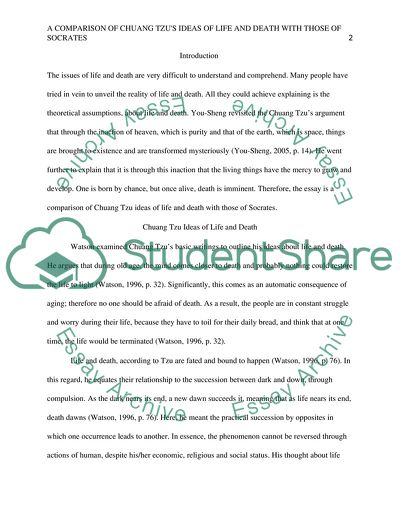Cite this document
(A Comparison of Chuang Tzu's Ideas of Life and Death with those of Coursework, n.d.)
A Comparison of Chuang Tzu's Ideas of Life and Death with those of Coursework. https://studentshare.org/philosophy/1762198-topic-compare-chuang-tzu-ideas-of-life-and-death-with-those-of-socrates
A Comparison of Chuang Tzu's Ideas of Life and Death with those of Coursework. https://studentshare.org/philosophy/1762198-topic-compare-chuang-tzu-ideas-of-life-and-death-with-those-of-socrates
(A Comparison of Chuang Tzu'S Ideas of Life and Death With Those of Coursework)
A Comparison of Chuang Tzu'S Ideas of Life and Death With Those of Coursework. https://studentshare.org/philosophy/1762198-topic-compare-chuang-tzu-ideas-of-life-and-death-with-those-of-socrates.
A Comparison of Chuang Tzu'S Ideas of Life and Death With Those of Coursework. https://studentshare.org/philosophy/1762198-topic-compare-chuang-tzu-ideas-of-life-and-death-with-those-of-socrates.
“A Comparison of Chuang Tzu'S Ideas of Life and Death With Those of Coursework”. https://studentshare.org/philosophy/1762198-topic-compare-chuang-tzu-ideas-of-life-and-death-with-those-of-socrates.


